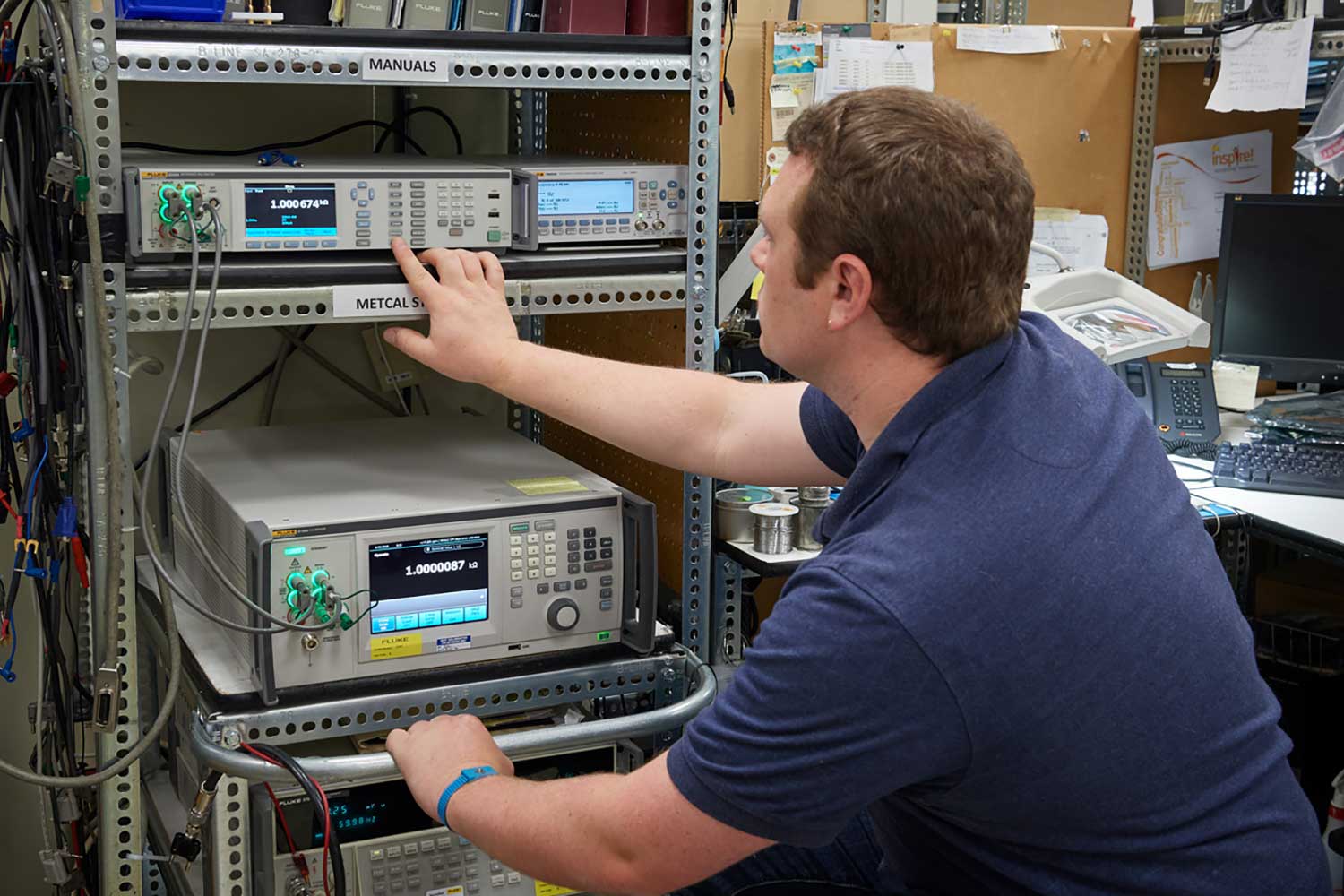Best Benchtop Multimeter – Most stable & accurate
Fluke Calibration engineering fleet spans the globe, several generations, and numerous disciplines: covering both calibration and engineering disciplines. When the 8588A 8.5-digit Reference Multimeter and the 8558A 8.5-digit Multimeter launched, one engineer on the project humbly stated those advances were “simply clever engineering.”

What is innovation if not clever engineering that is directed towards solving customer problems?
Solving tough engineering challenges is what engineers do. It’s what moves technologies, industries, and visions of a better future forward.
8588A and 8558A Reference Multimeters: the background
There are several reliable long-scale digital multimeters in the market. However, our customers voiced a strong need for more impactful innovation in this space. Electrical metrology laboratories needed a long-scale multimeter with higher stability and accuracy. Automated test equipment users required a combination of higher system throughput and high-accuracy measurements to meet the most demanding manufacturing applications of precision components and instruments.
These reference multimeters were designed to hold 2.7 ppm accuracy, offering higher stability and accuracy for all metrology applications.
Digital RMS
Digital Root Mean Squared, or Digital RMS, is the effective value or magnitude of a varying quantity such as an alternating voltage. Traditionally, engineers use an analog method to obtain the RMS value. For the 8588A and 8558A the team used a sampling system through an analog-to-digital converter to calculate the RMS value mathematically. This method allows the RMS to be much faster, using parts that are more stable to time and temperature.
Common hardware input buffer for AC/DC
In a hardware input buffer, the input signal is adapted to suit the measurement circuits. In the past, buffering has been good for low frequency and DC, or for higher frequencies, but not for both. For the 8588A and 8558A, the team utilized a composite design that operates from DC to 10 MHz, making these meters more reliable than older models.
Software measurement buffer
Information gathered by the 8588A or 8558A is held for processing in a software buffer. One of our firmware developers created a more efficient method to store and process this information. His method, along with the use of dual core processors, enables the 8588A and 8558A to process data fast—more than 100,000 readings per second. We were proud to recently see him present this inventive new method at an international software conference.
How to choose a digital benchtop multimeter
| Bench Multimeter Selection Guide | |||
| Model | Resolution | Accuracy | Application |
| 8588A | 8.5 digit | 2.7 µV/V 95% confidence level, 1-year relative accuracy | Metrology |
| 8558A | 8.5 digit | 4.0 µV/V 95% confidence level, 1-year relative accuracy | High-Speed Automation |
| 8808A | 5.5 digit | Basic V dc accuracy of 0.015 % | Bench |
Recommended resources
- Using precision digital multimeters in place of analog null meters for metrological applications
- Replacing analog null detectors with precision multimeters
- Overview of 8558A and 8588A calibration support processes and equipment requirements
- Fluke 8588A Reference Multimeter Demo Video
- 8588A Reference Multimeter Introduction Video


